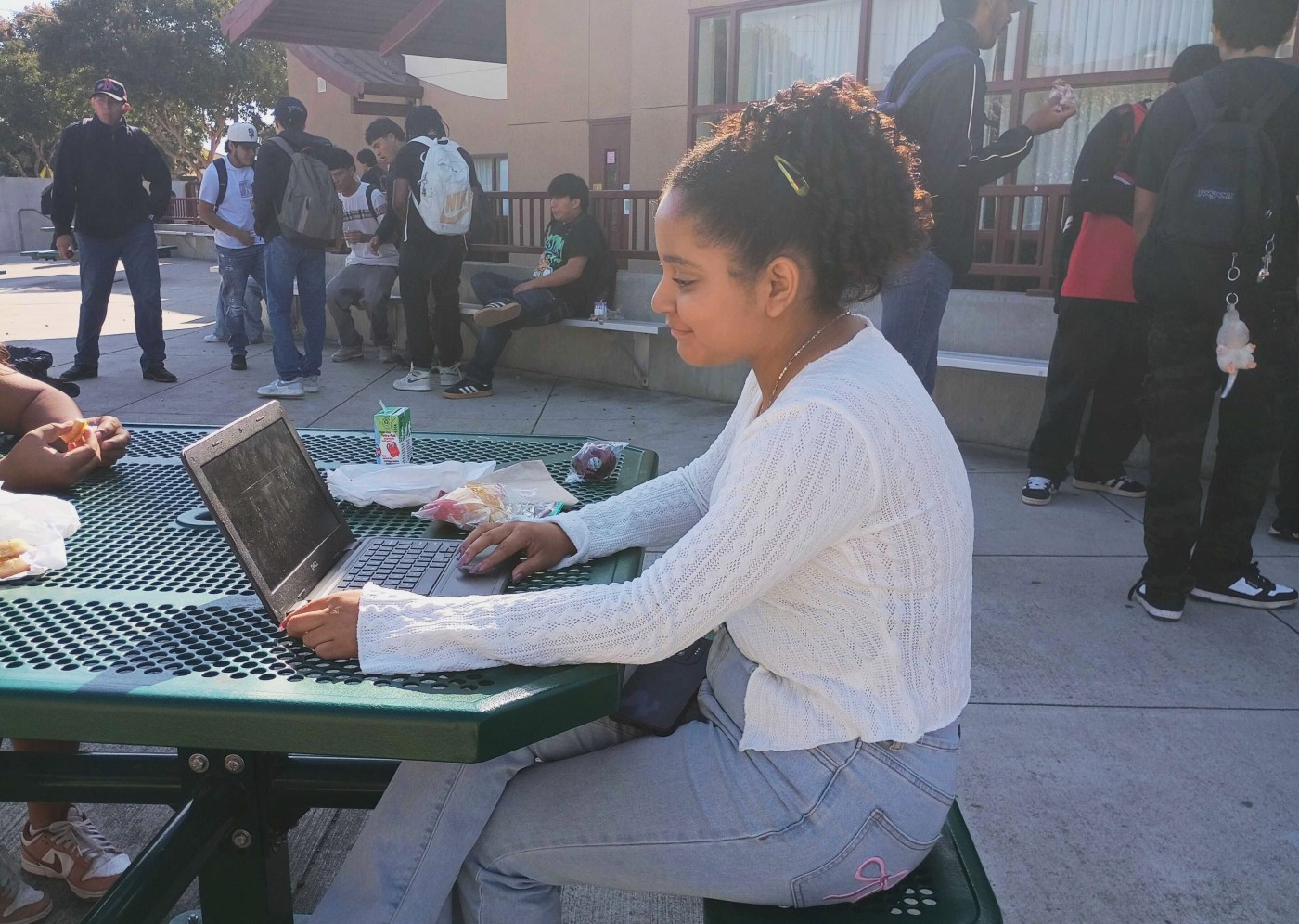
Editor’s Note: This article was written for Mosaic, an independent journalism training program for high school and college students who report and photograph stories under the guidance of professional journalists.
More than their younger siblings may do, high school students who came to this country as teenagers struggle while learning English in school.
For one, the younger brain learns language more quickly than the teen brain does. The concepts and material high schoolers face in class are more complex and difficult than the ideas taught in elementary school. And teens study more subjects at a faster pace than do younger kids.
Many young people long to be bilingual.
They know it’s necessary for school and work, and aim to earn a seal of biliteracy, recognizing that they’ve mastered two languages.
Several San Jose High School students who are native Spanish speakers say learning English is complicated. They wish the school had more resources to help them.
San Jose has one of the largest Hispanic population, about 300,000, among cities in the Bay Area. At San Jose High School, around 85% of students are Hispanic, and many are native Spanish speakers.
The school offers some resources for those learning English as a second language, including classes that help English learners develop the basics, and Spanish language classes for native speakers. Some teachers even offer to translate class materials and homework in Spanish.
But some students say that is not enough.
Senior Silvana Navarro came to the U.S. three years ago from El Salvador. Navarro said it was hard to learn English when she first arrived, and she is the only one who speaks English in her family. If she doesn’t understand a concept or sentence from class, she uses Google Translate to help.
“It was so difficult and confusing because sometimes I didn’t understand what the teachers were saying,” Navarro said in Spanish. “I felt hopeless because I couldn’t communicate as I wanted.”
Related Articles
Eco-conscious Bay Area students lobby for sustainable cafeterias
Data centers’ huge appetite for power concerns South Bay youth
San Jose teens express concerns about rising housing prices
South Bay teens say AI needs more guardrails to protect youth
Cultures converge at Mid-Autumn Moon Festival in San Jose
Speaking a new language is especially hard if students feel afraid of being rejected by their peers, said senior Ashlin Sanchez. Her family is from Honduras.
“It’s frustrating because you need to learn (English) so you don’t fail your classes,” Sanchez said in Spanish. “I have friends now but before it was complicated to make friends, more if they didn’t speak Spanish. Now I’ve found people who understand how it feels to not speak English well.”
Senior Nathaly Gissel said that classes like biology, algebra and English, once easy in her native language, suddenly became a challenge. Gissel’s family came to San Jose from Honduras two years ago. She often acts as a translator for her family.
“I would like to get better at it some day and hold a conversation without feeling like I can’t communicate what I want to say,” Gissel said in Spanish.
Some teachers and counselors at San Jose High School say they try to help students by translating classroom material into Spanish.
U.S. History teacher Paul Da Silvia said he doesn’t speak Spanish, but tries to make his classroom a safe space for students who are learning. Da Silvia often translates class materials into Spanish through Google Translate. He offers encouragement to English learners.
“They struggle but I know they are capable of learning, that’s why I always try to make them feel safe and not scared of speaking,” Da Silvia said.
Navarro said it is easier when teachers can translate class materials in Spanish, even if it is a little bit.
“When teachers translate at least one word you can get an idea of what they are saying,” she said.
Karina Ballin, a San Jose High School counselor, said translating materials can be useful.
“It’s helpful for students to practice the language on their own but sometimes they don’t try to, which doesn’t help them and only makes them learn less,” Ballin said in Spanish. She feels comfortable speaking in both languages, so Spanish-speaking students seek her out.
Ballin said learning a new language is a collaborative effort. She helps the students who don’t understand English by talking to them as well as their parents in Spanish.
“We need to work as a team with students, teachers and parents,” Ballin said. “When the student doesn’t want to make an effort to learn, that’s when we, the parents and the teachers, try to make a safe space for them to learn, even with all the complications they have with the language.”
Angelique Alvarez Martinez is a member of the class of 2026 at San Jose High School.